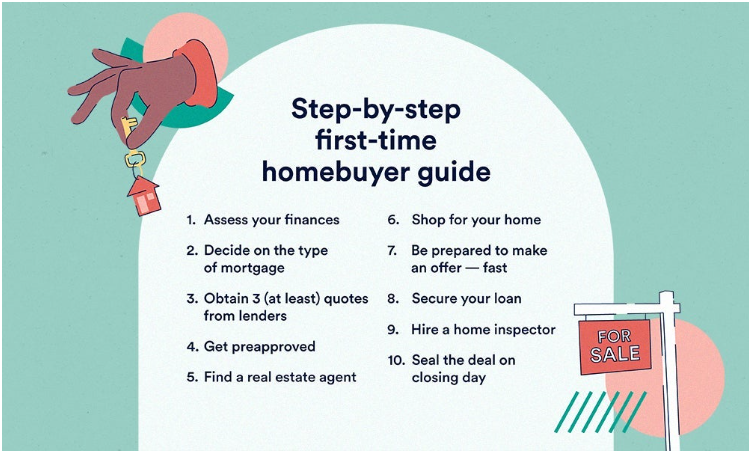First-Time Homebuyer Guide: What You Need to Know About Mortgages
Buying your first home is an exciting milestone but it can also feel overwhelming, especially when it comes to understanding mortgages. From interest rates and down payments to loan types and approval processes, there’s a lot to learn.
If you’re a first-time homebuyer, this guide breaks down everything you need to know about mortgages in a simple, step-by-step format. Let’s take the confusion out of the equation and get you on the path to confident homeownership.
What Is a Mortgage?
A mortgage is a type of loan used to purchase a home. You borrow money from a lender, and in return, you agree to repay it with interest over time. The home itself serves as collateral, meaning if you stop making payments, the lender can take possession of the property.
Why Mortgages Matter for First-Time Buyers
Unless you’re paying cash, you’ll likely need a mortgage to buy your first home. Understanding how mortgages work can help you:
-
Determine what you can afford
-
Compare loan options
-
Qualify for better interest rates
-
Avoid costly mistakes
✅ Step 1: Check Your Credit Score
Your credit score plays a major role in whether you get approved and what interest rate you’ll pay.
-
A score of 620+ is generally required for a conventional mortgage.
-
580 may qualify you for an FHA loan with a 3.5% down payment.
-
Higher scores can help you secure lower interest rates, saving you money over time.
Tip: Check your credit report, fix any errors, and pay down debts before applying.
Step 2: Know Your Budget
Determine how much home you can realistically afford based on your income, debts, and savings.
Consider:
-
Monthly mortgage payment (principal + interest)
-
Property taxes
-
Homeowners insurance
-
PMI (if your down payment is less than 20%)
-
Maintenance and utilities
Use the 28/36 rule: Spend no more than 28% of your gross income on housing and no more than 36% on total debt.
Step 3: Explore Mortgage Loan Options
There are several types of mortgage loans. Each has its own requirements and benefits:
🔹 Conventional Loan
-
Good for buyers with strong credit and steady income
-
Requires 3–20% down
🔹 FHA Loan
-
Backed by the government
-
Easier to qualify with lower credit scores
-
Requires as little as 3.5% down
🔹 VA Loan
-
For veterans and active-duty military
-
No down payment required
🔹 USDA Loan
-
For rural and suburban homebuyers
-
No down payment if eligible by location and income
Step 4: Get Pre-Approved
A mortgage pre-approval is a lender’s conditional commitment to loan you a specific amount based on your financial profile.
Benefits: First-Time Homebuyer Guide: What You Need to Know About Mortgages
-
Helps define your price range
-
Makes you a stronger buyer in a competitive market
-
Speeds up the loan process once you find a home
Step 5: Find a Home and Make an Offer
With your pre-approval in hand, work with a trusted real estate agent to:
-
Tour homes within your budget
-
Compare neighborhoods, schools, and commute times
-
Make a competitive offer once you find the right one
Step 6: Finalize Your Mortgage
Once your offer is accepted, you’ll officially apply for the mortgage. The lender will:
-
Order an appraisal
-
Verify your income and assets
-
Review your credit again
-
Issue a final loan approval (or request additional info)
Step 7: Close the Deal
On closing day, you’ll: First-Time Homebuyer Guide: What You Need to Know About Mortgages
-
Sign the final loan documents
-
Pay your down payment and closing costs
-
Receive the keys to your new home!
Extra Tips for First-Time Buyers: Homebuyer
-
Don’t rush into a loan offer without comparing lenders
-
Avoid new debt (like a car loan or credit card) before closing
-
Set aside extra funds for moving and unexpected home repairs
-
Ask questions no question is too small when buying a home!
Final Thoughts: First-Time Homebuyer Guide
Getting your first mortgage might seem intimidating, but it doesn’t have to be. By understanding the basics, planning ahead, and working with the right professionals, you’ll feel more confident every step of the way.
This is your journey to homeownership and with the right knowledge, you’re more than ready for it.


